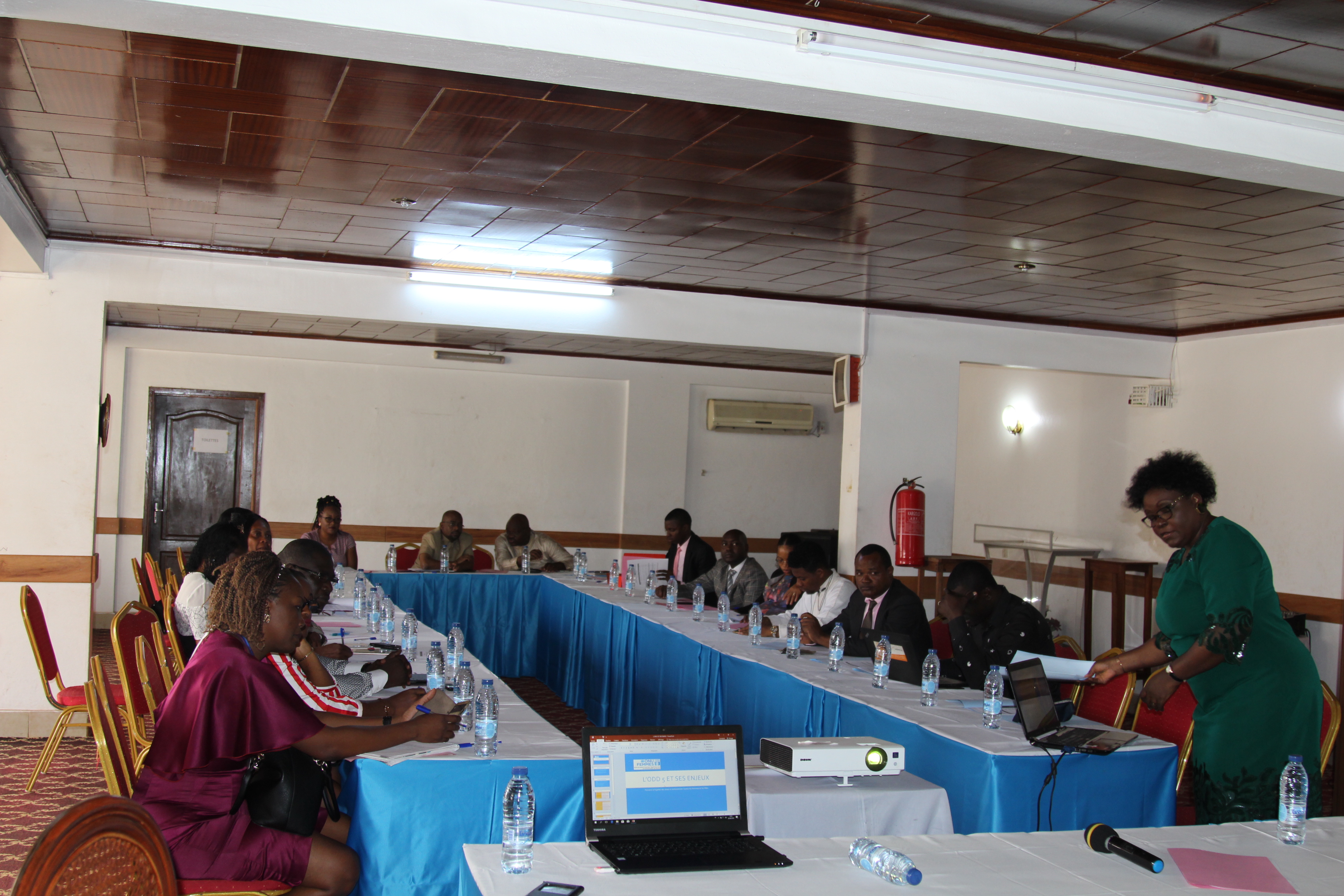UN Women promotes the generation and use of gender statistics in Cameroon
Date:
UN Women has launched its flagship program ‘Making Every Woman and Girl Count’ (MEWGC) in Cameroon which aims to bring about a radical shift in how gender statistics are used, created and promoted. The programme seeks to address the urgent need to increase the availability of accurate information on gender equality and women’s rights to inform policy and decision-making.
UN Women has organized several workshops and working sessions to mobilize and build capacity of stakeholders on the generation and use of gender statistics. This has helped to sensitize stakeholders on the objectives of the MEWGC flagship program and its importance at the national level. These efforts will raise awareness of targets and indicators of SDG5 and for the validation of the methodology for the national statistics assessment.

Speaking during the workshop to validate the national statistics assessment methodology, Adama Moussa, Resident Representative of UN Women Cameroon said,“Effective gender mainstreaming in policies need robust indicators to measure and evaluate progress in gender equality in the implementation of the SDGs.”
The national statistics assessment and the elaboration of the MEWGC action plan in Cameroon, the key actors: National institute of statistics (NIS); Bureau for census and population studies (BUCREP) and the Central Bureau of civil registration (BNEC) are responsible for the generation of statistics. They have appointed focal points to work with UN Women to support the national assessment process. This involves assessing the availability of gender disaggregated data and identify gaps in the generation and use of gender statistics in five key domains – health, economic and political participation, employment, education and violence.
Several government institutions, UN Agencies and civil society have equally requested for UN Women’s support in the generation of gender sensitive statistics and its use for a better programming in their activities. This will hence improve gender disaggregated data in different sectors and gender mainstreaming in the implementation and assessment of the SDGs in Cameroon. Following this request, a capacity building workshop will be organized to train gender focal points and Monitoring and Evaluation officers in UN agencies on how to build gender sensitive indicators for the monitoring of SDGs within different agencies.